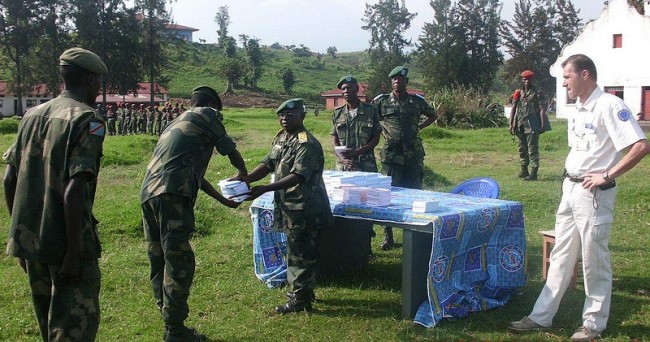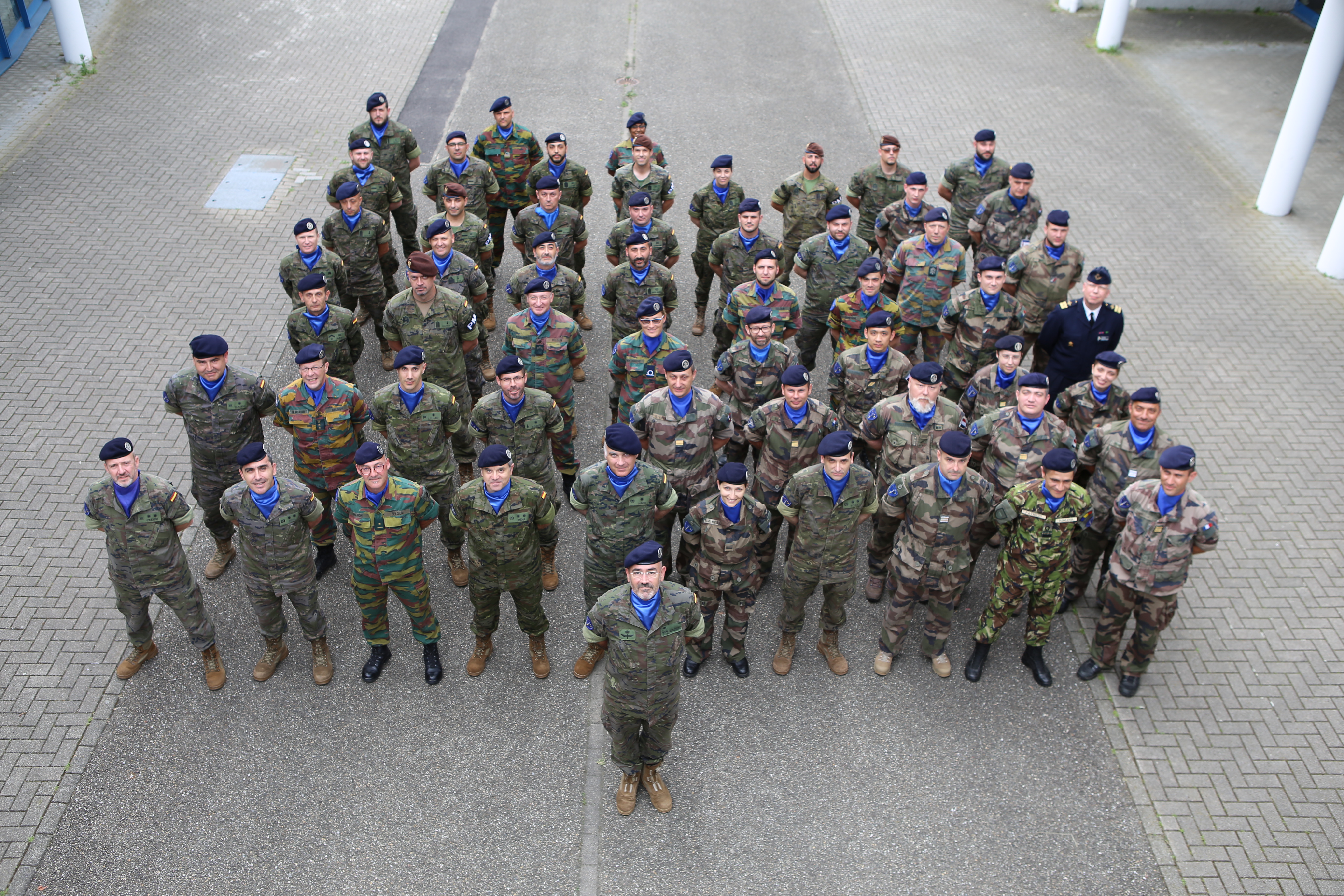The reform of the army in the Congo: banking, reintegration, training...

(BRUSSELS2) The reform of the army in Congo — supported by the European mission EUSEC RD Congo — has begun… With the implementation of one of the main points: the payment of soldiers by bank transfer. This may seem like a detail. But it is far from being one. This requires both broader cultural and organizational reform.
Banking: a real inventory
This so-called “banking” process “ really obliges to make an inventory of the workforce explains J.-L. Nuremberg, the head of the European security reform assistance mission (EUSEC RD Congo). " It is necessary to register the assets but also the inactive ones: the wounded, the guardians of the family who receive the money in the event of a deceased person. Identity cards had to be redone, also for veterans. The accounting process involves, in fact, a radical aspect. Previously, if a company commander declared, for example, 150 people, he was given pay for 150.... And he managed. " If we send by bank transfer, this requires precise identification of all recipients.. And it allows sorting. " If the person does not come to withdraw the money within three months, we know that he does not exist... "
A reform in the form of a big bang
The Europeans had recommended moving to "banking" gradually at the rate of one region per month. The Congolese found the necessary funding and decided to carry out the reform in ten regions at the same time. A reform that goes well. Some could thus have the fear of a bad application by the military. " But in this operation of banking which generally concerns all public officials, they are the most disciplined…”. Since October, soldiers in Kinshasa have been paid by this process: out of 130.000 soldiers, 70.000 have been banked in this way. The advantage is to avoid having armed soldiers who all show up at the bank... with their weapons. " Having soldiers with Kalashnikovs in the bank, it's messy “testifies an officer. " And the bankers didn't like ". We understand them!
Not a simple reform
This reform also has setbacks and drawbacks. Some leaders tended to use fictitious soldiers out of self-interest. But others did it just to have the necessities for daily functioning. Banking can also have the disadvantage of feeling less of an obligation for the soldiers to be present and of diminishing the authority of the direct commander. In a country where the culture of the "invoice" is not very developed, this can pose some problems on a daily basis. Banking does not only concern salaries but also the household fund, which the company commander has free use of, in particular to meet the needs of the troop (food) or purchases... Last difficulty: between the start of the reform and its application, the unit was able to move, and its workforce modified; which leads to some administrative problems.
Some failures in the reintegration of ex-rebels
The integration of ex-rebels into the army, on the recommendation of the Europeans and the international community, represents another major challenge. Even if no one wants to admit it, it's a recurring problem. Certain international precepts seem to have been erroneous or not adapted to the local situation, in particular the fact of integrating certain groups en bloc. " There is so much lack of control in the east of the country that a rebel group is created every week testifies a European officer.
Reintegration is very “ complicated. (...) We cannot throw these soldiers into civilian life without support ". The formula used in mid-2000 seems to have fizzled out, not having provided all the proof of effectiveness. " In 2006, we gave $100 for each demobilized and a kitchen kit. But that wasn't enough. “The idea is now rather “ to keep them as long as possible in the army”. A few thousand are going to be retired, in an honorable way. And to accompany the rebels towards civilian life, by putting them on agricultural farms or engineering school, to learn a trade from a soldier.
The question is also psychological. " Some left their families very young. They only experienced one thing: shoot and be shot. They lived in the bush and never had any kind of education. (…) This raises a lot of questions The Red Cross has developed a psychoanalysis program to distort the military. And in the European team there are two human rights experts (a Belgian/an Italian).
The training challenge
The Congolese have great ambitions for their army: they want to train as many soldiers in ten years, representing double that of neighboring countries. " For 20 years there was no officer school. There is thus a whole generation which has not really been formed. If she knows the terrain, she does not know the tactical or doctrinal rules. » They are guided by a cold war philosophy ". This represents a certain internal and external "danger". It is true... that the international community does not support them much in the face of Rwanda and Uganda. There is thus a gap between the long-term training that Europeans want to give priority to and the short-term training that they want”.
Several schools are being restructured: the military academy for officers, the school for non-commissioned officers, the infantry school in Kitona, the logistics school is being built in Kinshasa while the school of administration operates in Kananga… “ It works because EUSEC pays the teachers, the syllabi, all the recruitment. If we stop paying, they will have great difficulty. The Europeans are sensitizing the Congolese so that they take over. The cost of the schools is approximately $750.000; which is not not much »... even for the Congo, which remains a rich country.
Read also (Congo):


Comments closed.